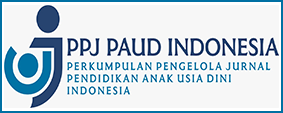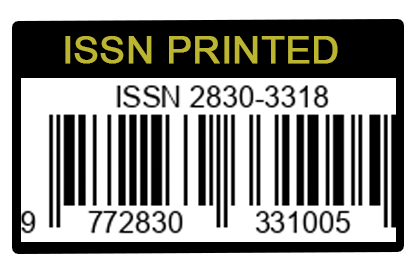Konseling Islami Berbasis Kisah Nabi untuk Meningkatkan Kemandirian Anak di RA Al-Kifayah Riau
DOI:
https://doi.org/10.53398/arraihanah.v5i1.637Keywords:
Islamic Counseling Approach;, Prophet Stories; , Children's Independence;Abstract
This study aims to increase children's independence and strengthen Islamic values and offer novelty in the approach to early childhood counseling by integrating the stories of the Prophet as the main media. This study introduces a counseling model that is religious and contextual. The results of this study have significant practical implications for teachers, this approach can be a learning strategy as well as effective guidance in instilling values of independence in a fun and meaningful way for children. The research method used is a qualitative descriptive case study approach. The subjects of the study included class teachers and students, while the object of the study was children's independence. Data collection techniques were carried out through observation, interviews, and documentation. Data analysis techniques used deductive and inductive approaches. The results of the study showed that through interviews with teachers, it was found that the story of the Prophet was considered more effective than the lecture method because children were more interested, focused, and easily remembered the values conveyed. Children's independent behavior began to be seen from them imitating the characters in the story. The effectiveness of Islamic counseling through the story of the Prophet can be seen from children easily grasping the message and making children happier. In conclusion, the application of the Islamic counseling approach through the story of the Prophet has a positive influence on increasing the independence of early childhood
References
Al-Attas, S. M. N. (1991). The Concept of Education in Islam: A Framework for an Islamic Philosophy of Education. Kuala Lumpur: ISTAC.
Al-Ghazali. (2002). Ihya’ Ulumuddin (Vol. 3). Beirut: Dar al-Fikr.
Creswell, J. W. (2016). Research Design: Qualitative, Quantitative, and Mixed Methods Approaches (4th ed.). Thousand Oaks: Sage Publications.
Dita Amalia Sakina. (2022). Implementasi Metode Bercerita dalam Meningkatkan Karakter Islami Anak Usia Dini: Penelitian Tindakan Metode Bercerita Kisah Nabi pada Anak Usia 5-6 Tahun. Universitas Pendidikan Indonesia. Tersedia di: https://repository.upi.edu/77140/UPI Repository
Erikson, E. H. (1963). Childhood and Society. New York: Norton.
Hurlock, E. B. (2005). Child Development. New York: McGraw-Hill.
Miles, M. B., Huberman, A. M., & Saldaña, J. (2014). Qualitative Data Analysis: A Methods Sourcebook (3rd ed.). Thousand Oaks: Sage.
Moleong, L. J. (2017). Metodologi Penelitian Kualitatif. Bandung: Remaja Rosdakarya.
Muksin, M., & Ali Mudlofir. (2024). Urgensi Penanaman Nilai-Nilai Pendidikan Islam Bagi Remaja Lewat Kisah-Kisah Islami. Attaqwa: Jurnal Ilmu Pendidikan Islam, 20(1), 1–11. https://doi.org/10.54069/attaqwa.v19i2.649
Nur, M. (2018). “Internalisasi Nilai-Nilai Pendidikan dalam Kisah Nabi untuk Anak Usia Dini.” Jurnal Pendidikan Islam Anak Usia Dini, 3(1), 34–48.
Papalia, D. E., Olds, S. W., & Feldman, R. D. (2008). Human Development (10th ed.). New York: McGraw-Hill.
Rosyada, D. (2016). Pendidikan Islam Transformatif: Studi Pengembangan Pendidikan Islam di Indonesia. Jakarta: Kencana.
Samratulaeni, (2022). Bimbingan Konseling Islam Untuk Kemandirian Anak Usia Dini, Palopo
Subban, Dkk. (2025) Bimbingan Konseling Islami Pada Anak Usia Dini. https://jicnusantara.com/index.php/jiic/article/view/2246/2301
Suyadi. (2015). Psikologi Pendidikan Islam Anak Usia Dini: Teori dan Praktik dalam Pendekatan Holistik. Yogyakarta: Pedagogia.
Tilaar, H. A. R. (2004). Multikulturalisme: Tantangan-Tantangan Global Masa Depan dalam Transformasi Pendidikan Nasional. Jakarta: Grasindo.
Vygotsky, L. S. (1978). Mind in Society: The Development of Higher Psychological Processes. Cambridge, MA: Harvard University Press.
Yusuf, S. (2009). Konseling Islami: Teori dan Praktik. Bandung: Remaja Rosdakarya.
Downloads
Published
How to Cite
Issue
Section
License
Copyright (c) 2025 Ar-Raihanah: Jurnal Pendidikan Islam Anak Usia Dini

This work is licensed under a Creative Commons Attribution-NonCommercial-ShareAlike 4.0 International License.







.png)




